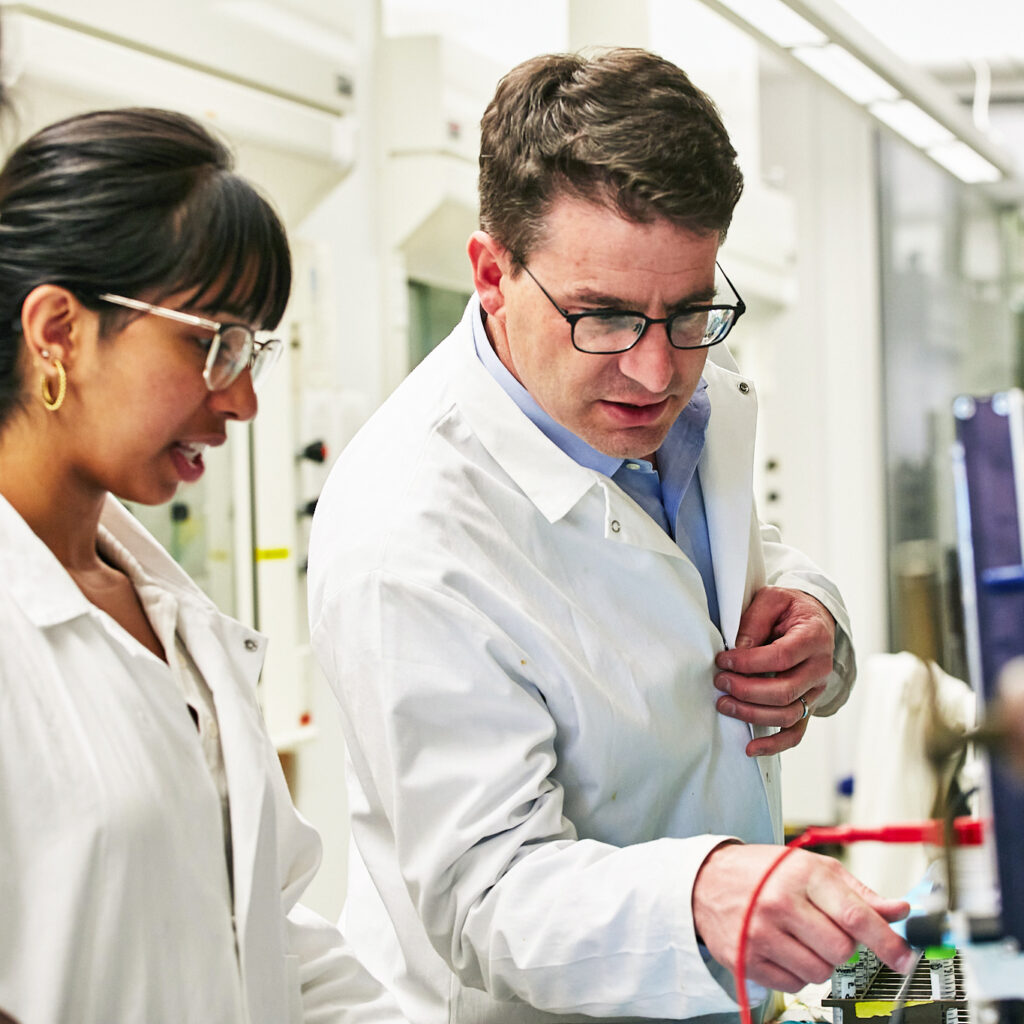The Center for the Environment launched July 1, 2023, as a cross-disciplinary hub that includes over 100 faculty and research staff members from eight schools.
Marquee accomplishments through 2025
Launched the center
The center functions in three key ways: as a collaboration hub, a research accelerator, and a signal booster. These roles help WashU faculty, staff, and students work together, advance new ideas, and share their work with the world.
Collaboration hub
- Brings people together to spark new connections and ideas.
- Hosts regular events such as the Environmental Research Collaboration Series and facilitates topical workshops championed by faculty.
- Runs the annual Environmental Research and Creativity Week.
Research accelerator
- Helps faculty teams pursue big research questions.
- Supports interdisciplinary groups seeking external funding through strategy, matchmaking, and proposal development.
- Offers project management support for complex, cross-school projects (such as the NSF-funded Trusted Tap Convergence Accelerator project).
Signal booster
- Raises the visibility of WashU’s environmental work.
- Highlights research and people through events, communications, and public engagement.
- Partners with University Advancement and Marketing & Communications to reach donors and external audiences.
Air quality and health
The center has catalyzed interdisciplinary research by supporting more than 30 proposals and grants. A major outcome of the center’s mobilization efforts is the Air Quality and Health Transcend Initiative, a project that emerged directly from center-led workshops and received a Transcend Initiative Grant of $150,000 per year for three years to fund this work.

New funding
The center plays a direct role in transforming early stage ideas into funded research. One standout example is the Trusted Tap project. Led by Daniel Giammar, this $5 million National Science Foundation-funded effort brings together an interdisciplinary team across and beyond WashU to transform how communities monitor and manage drinking water quality.
Undergraduate environmental research
Understanding the importance of engaging researchers early, the center launched its Summer Undergraduate Research Program in 2024 to introduce students to environmental scholarship and hands-on inquiry. Undergraduate students from 16 majors and three schools participated. The 2025 program selected students from 15 majors and five schools from over 50 applications.
Planetary health
The center’s faculty leadership and staff played key roles in the design of a new School of Public Health innovation research network (IRN) in planetary health. Together the center and the IRN will advance innovation research and multi-sectoral partnerships to address challenges of environmental change to human health and the health of all life on the planet. Center faculty leadership participated in the search that yielded Dean Sandro Galea and have been active in recruiting new faculty to WashU in areas of planetary and environmental health.
Faculty and community engagement
The center provides opportunities for WashU faculty and community partners to address the biggest environmental needs and assists faculty with publishing in industry journals.
120+
faculty and full-time research scientists enlisted as center scholars
16
workshops to promote research collaboration
200+
peer-reviewed journal articles published in 2024